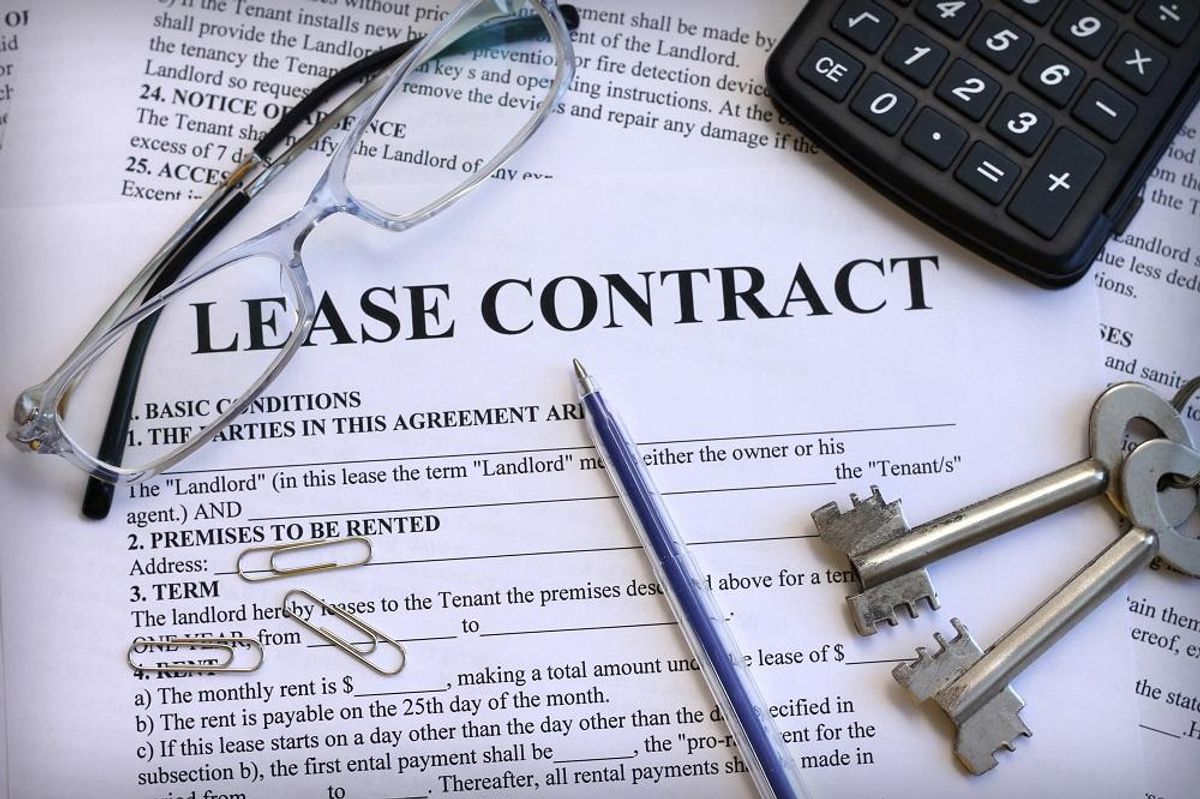
10 Tips on Writing an Airtight Lease Agreement: A Guide for Landlords
One of the best ways to protect your interests as a landlord is to have a written lease agreement. A properly constructed lease agreement can mean the difference between getting stuck with a problem tenant and having the legal recourse to protect your property. This is why if you're renting your property to tenants, you must know the important things to include when writing a lease agreement.
As you write your lease agreement, here are some guidelines to help you draft an airtight document that will protect you and your property. Also be sure to check with an attorney who is well versed in landlord/tenant law before finalizing such an agreement. A professional will be able to assist you in determining your legal rights in many different situations.
10 tips to writing a lease agreement
1. Make sure you know the law
Each state (and a number of cities) has different laws regarding the management of property, and rights of landlords and tenants. Familiarize yourself with these laws before writing a lease agreement. This will assist you in knowing exactly what you can and cannot put into an agreement.
2. Make your document clear
Confusing terms and a poorly written agreement can be misinterpreted, and may not hold up in court. Put your stipulations in easy-to-understand terminology, and explain anything that might be misconstrued.
3. Provide confirmation of the condition of the unit
The lease should state that the unit being leased is in good condition without damage or problems.
4. Specify your pet policy
Specify if you allow your tenants to have pets and if there are any restrictions. If you only allow a certain type of size of animal, state it here. Many landlords have an absolute prohibition on pets.
5. Include information about right of entry
Each state requires a specific amount of notice before a landlord may legally enter a rented dwelling. The normal amount of time is 24 hours, but some states require 48 or 72 hours notice. Check the right of entry laws in your state before including this in the agreement.
More articles from AllBusiness.com:
- 10 Ways to Resolve Landlord/Tenant Disputes
- What Can I Do If My Tenant Sublets My Rental Property Without Notifying Me?
- What Should I Do If My Tenant Breaks the Lease on My Rental Property?
- What’s the Difference Between a Rental Agreement and a Lease for a Rental Property?
- Top 4 Mistakes Made by Real Estate Investors
6. Spell out what will happen to the security deposit
If you require your tenants to pay a deposit against damages, you'll need to specifically state what is considered “damage” to the dwelling.
7. Clearly state the amount of rent and deposits
Include the amount you will be charging for rent and any deposit amounts in your rental agreement. State when the rent is due and when it is considered late. This will help prevent misunderstandings, and give you legal recourse if the tenant is continually late.
8. Include information about repairs and what you will and will not cover
As a landlord, it is your responsibility to provide repairs for fixtures, heating and cooling equipment, and included appliances. However, in the lease you can designate certain maintenance responsibilities on the part of the tenant. You can also hold the tenant responsible for repairs needed due to his or her negligence or wrongful acts.
9. Specify any activity restrictions
If you have a code of conduct, include it in your rental agreement. For example, if you do not allow loud music after a certain time or have other restrictions, add them to your rental agreement. This will provide your tenants with a clear idea of what they cannot do, and will protect your interests should a tenant fail to follow your rules.
10. State what will happen if the lease agreement is breached by the tenant
For example, if the tenant breaks the code of conduct or does not pay his or her rent on time, you can state that the landlord will have the right to terminate the lease and evict the tenant.
RELATED: 7 Frequently Asked Questions by First-Time Home Buyers



